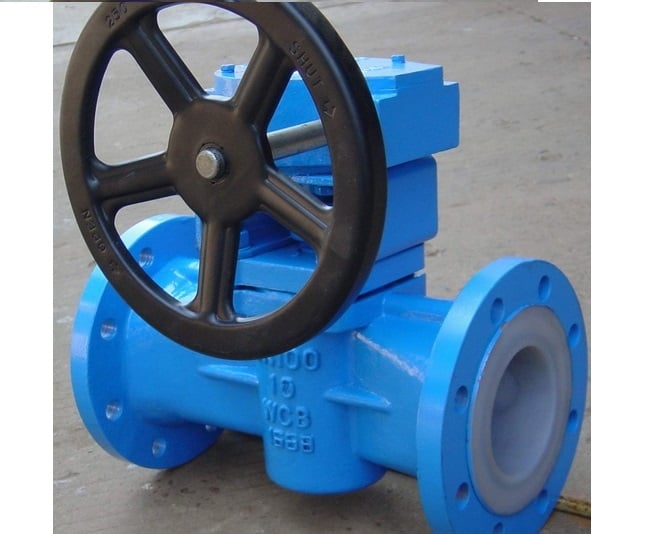Lined Plug Valve
PTFE Lined Plug Valve
Size: DN20~DN250
Pressure: 1.0MPa
Material: Carbon Steel, Stainless Steel
End Type: Flalnged
Suitable Temperature: -50~150℃
Introduction of PTFE Lined Plug Valve

The PTFE lined plug valve is suitable for aqua regia, sulfuric acid, hydrochloric acid and hydrofluoric acid of various concentrations from – 50 ℃ to 150 ℃. The valve is also widely used in various organic acids, strong acids and strong oxidants. FEP is also suitable for various concentrations of strong alkali organic solvents and other corrosive gases and liquid medium pipelines.
Features of PTFE Lined Plug Valve
1. The cock and lined valve body have ideal taper design. When they can not be sealed due to wear during use, the adjusting screw on the valve cover can be adjusted to make the cock move downward to compensate the sealing force on the sealing surface.
2. The top seal assembly forms a second outer seal to prevent the medium from leaking from the valve stem when the sealing surface fails.
3. After opening the four bolts on the upper valve cover, all parts in the valve can be taken out, and the valve parts can be directly replaced without removing the valve from the pipeline.
4. The utility model has the advantages of simultaneously sealing the inlet and outlet ends, small friction coefficient of the sealing surface in the whole working process, flexible operation of the plug body, and no lubrication.
5. Good sealing performance and long service life.
6. Various media can be used to change the lining material of parts.
